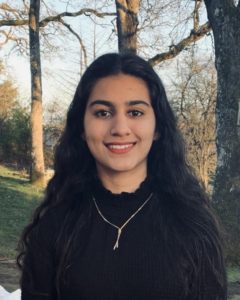The Camosun College Student Society (CCSS) held its student elections from April 12 to 14.
Afaf Burrow was elected as women’s director, and Arshnoor Kaur as student wellness and access director. Gavinjit Bassi is the Lansdowne executive; Angela Chou is a Lansdowne director. Sneha Mary Chacko is the Interurban executive. Monika Bhardwaj is the international director. Puneet Kaur is the new external executive, while Amanda Garner is sustainability director, and Evalyn Combes is First Nations director.
652 students voted in the elections, which is about seven percent of the student population.
External executive Kaur says that one of the issues she wants to tackle is reducing fees for international students. Like student politicians before her, she has brought the issue to the attention of local MLAs.
“This year I have noticed a change in the reaction of MLAs,” she says. “They were also understanding the situation of international students. They were agreeing… that because of COVID, everyone lost their job.”
There is no cap for raising international-student tuition (for domestic students, it can only go up by two percent annually) but Kaur says MLAs assured student delegates during meetings that they would be in connection with student societies regarding updates on possible restrictions on international-student tuition-fee raises.
“I feel like this is a really big success for all the student societies,” she says.

CCSS clubs and events support assistant Quinn Park calls seven percent of the student population turning out to vote “par for the course,” perhaps even a little higher than usual.
“We’ve settled into a groove,” says Park. “Students who want to get involved, and who want to campaign, and have their ideas voiced, are going to find a way to reach out to students.”
In the CCSS’ fall 2020 election, 747 students votes were cast, which Park says is about eight percent of the student population.
“They’re always going to find a way to overcome those challenges,” says Park, regarding campaigning during COVID-19. “We find it’s easier, because the students who are campaigning are so eager to do so.”
Park says that while seven percent turnout is average, he is always open to conversations about how to get more votes.
“It is always better to have more students involved in the voting process,” he says. “Seven percent is not a bad number for an election within the pandemic.”
Kaur says it is her honour to represent, and listen to, students.
“It’s been a really tough year for all of us,” she says. “Not only domestic, but international students, also. There was drastic change for every student.”
Working on the problems students are facing—such as getting more educational supplies and essential-supply hampers out to students—and then taking those problems to the college, and to CCSS staff members, is key to Kaur.
“I really like to help students. My new position is advocating for students… in this position, I will be the primary delegate going to [British Columbia Federation of Students meetings].”
Camosun students are paying members of the British Columbia Federation of Students (BCFS); each student pays $2.38 per month to be in the BCFS. Whether the advocacy is provincial with the BCFS, or federal with the Canadian Alliance of Student Associations—of which Camosun students are also members, paying 44 cents per month per student—Kaur says that she will be the one doing the advocacy work, and says that she is in a good position to do so.
“I am also a student,” she says. “I know what problems other students are going through more clearly, so I can advocate perfectly for them, and I can work on ground problems.”
